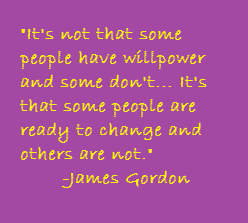
Life is full of change, good and bad, that makes you grow as a person. However, change can also be stressful and confusing. Going through treatment and stopping an addiction is one of the most difficult changes a person can make. Before true change can happen, we must be ready for it and want it for ourselves. In the beginning of addiction treatment we think the only thing we need to change is the addiction it-self. However, for the addiction to change, we must change our lives too. We have to change the friends we are with, environments we are in, and a lot of behaviors that have become a part of our lives. This usually engages a grieving process because we are needing to let go of our life as we know it and find a new, healthier one. This can be scary, but it is necessary for sobriety to last. Looking at what motivated us to make the change in the first place is a productive way of handling the stress change causes. We discussed some of our motivators for this change in our lives during group today. The negative consequences of addiction (death, broken relationships, legal/career ramifications, etc) are good motivators because they are real consequences that we are trying to avoid, mostly out of fear. The negatives are important to remember, but it is helpful that we find positive motivators as well to help our progression. Looking at the good that comes out of being sober (more time and money to spend on other things, healthier relationships, healthier body, finding a new and fun lifestyle, etc.) can be even better motivators because it helps you see what you are getting out of recovery instead of focusing so much on what you are giving up in recovery. Now that we are taking away a lot of aspects of our lives for change, we need to supplement them with new, positive relationships/behaviors/places. We must find new ways to self-soothe, new social networks, and new ways to have fun. Look at recovery as an opportunity to have major self-growth and challenge yourself in ways you may have never done before. Although there is some grief and sadness with change, remember your motivators and that this is a positive change for your life and your future.



 RSS Feed
RSS Feed